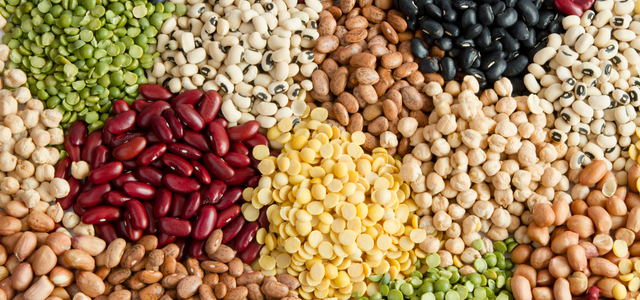
As a Plant Manager in a Food and Beverage manufacturing facility, you are aware of the complexities and challenges of managing a facility that is responsible for producing high-quality products while optimizing production, minimizing waste, and controlling costs. The role requires a comprehensive understanding of the business, supply chain, and production process, including managing inventory, procurement, production scheduling, and distribution. This is where Enterprise Resource Planning (ERP) comes in as a tool that can help your facility to achieve efficiency, cost savings, and customer satisfaction.
ERP Overview
ERP is an integrated software system that manages all aspects of a business, from planning to execution. It enables organizations to integrate and automate business processes across different departments, including finance, human resources, supply chain, and production. ERP systems provide a centralized database for data storage and retrieval, providing real-time data and analysis to inform decision-making.
ERP in Food and Beverage Manufacturing
ERP is particularly useful in Food and Beverage manufacturing, where there are complex supply chains, regulatory requirements, and product quality standards. An ERP system can help manage the procurement of raw materials, production planning, quality control, and distribution. The system can also track inventory levels, reducing the risk of stockouts, and waste, while improving production efficiency.
Benefits of ERP in Food and Beverage Manufacturing
1. Integration and Collaboration
ERP systems provide a centralized database that integrates data from different departments and processes, allowing for collaboration and visibility across the organization. With an ERP system, Plant Managers can track and manage procurement, production, and distribution processes in real-time, ensuring that everyone is working from the same page.
2. Better Inventory Management
In the Food and Beverage industry, inventory management is critical to avoid waste, stockouts, and product recalls. An ERP system can help track inventory levels and demand patterns, enabling Plant Managers to plan production schedules and manage stock levels effectively.
3. Improve Quality Control
Product quality is critical in the Food and Beverage industry. An ERP system can help monitor production processes and track product quality, ensuring that products meet customer and regulatory requirements. This can reduce the risk of recalls and protect the brand's reputation.
4. Cost Savings
An ERP system can help identify areas of inefficiency and waste, reducing costs and improving the bottom line. It can also help manage procurement processes, ensuring that the facility is purchasing the right materials at the right price
An ERP system can help provide better customer service by improving production efficiency, reducing lead times, and ensuring on-time delivery. This can enhance customer satisfaction and loyalty.
Selecting an ERP System
When selecting an ERP system, Plant Managers should consider the following factors:
1. Functionality
Does the system provide the necessary features and capabilities to meet the specific needs of the business?
2. Scalability
Can the system grow with the business, and is it flexible enough to accommodate changing requirements?
3. Integration
Can the system integrate with existing systems and applications, such as accounting software, CRM systems, and manufacturing equipment?
4. User Interface
Is the system easy to use and intuitive, with a user-friendly interface that employees can quickly learn and use?
5. Support and Training
Does the vendor provide adequate support and training to ensure a smooth implementation and ongoing use of the system?
Once a suitable ERP system has been selected, the implementation process should be carefully planned and executed. This may include data migration, system configuration, and employee training. It is important to engage with all stakeholders and ensure that everyone is aligned on the goals of the project. A phased implementation approach may be appropriate, starting with a pilot project or limited rollout before scaling up to a full deployment.
Implementation of ERP
Implementing an ERP system involves several stages, including system selection, configuration, testing, training, and go-live. The process can take several months or even years, depending on the size and complexity of the organization.
Here are some steps you can follow to ensure a successful ERP implementation:
1. Assess Business Needs
Identify the pain points and challenges faced by your business. This will help you determine which ERP system is best suited for your needs.
2. Choose the Right Vendor
Research and select an ERP vendor who has experience in the F&B industry. Look for vendors who can provide customized solutions and support your business goals.
3. Plan Implementation
Develop a detailed implementation plan, including timelines, milestones, and resources required. Communicate the plan to all stakeholders, including employees, vendors, and customers.
4. Train Employees
Ensure that all employees who will be using the ERP system receive adequate training. This will help them use the system effectively and reduce the learning curve.
5.- Monitor and Evaluate
Regularly monitor and evaluate the ERP system's performance. Identify areas of improvement and address them promptly to ensure that the system is functioning optimally.
In conclusion, ERP (Enterprise Resource Planning) systems are critical tools for Food and Beverage manufacturing plants. These systems provide a comprehensive solution that can help businesses manage and streamline their operations, including inventory management, production planning, quality control, and financial management. ERP systems can also improve supply chain management and enhance customer satisfaction by providing real-time information on product availability, delivery status, and order processing. With their ability to improve operational efficiency and provide data-driven insights, ERP systems are essential for food and beverage manufacturers looking to stay competitive in today's market.
Topics: Advanced Planning and Scheduling, food manufacturing, APS benefits




















LEAVE A COMMENT